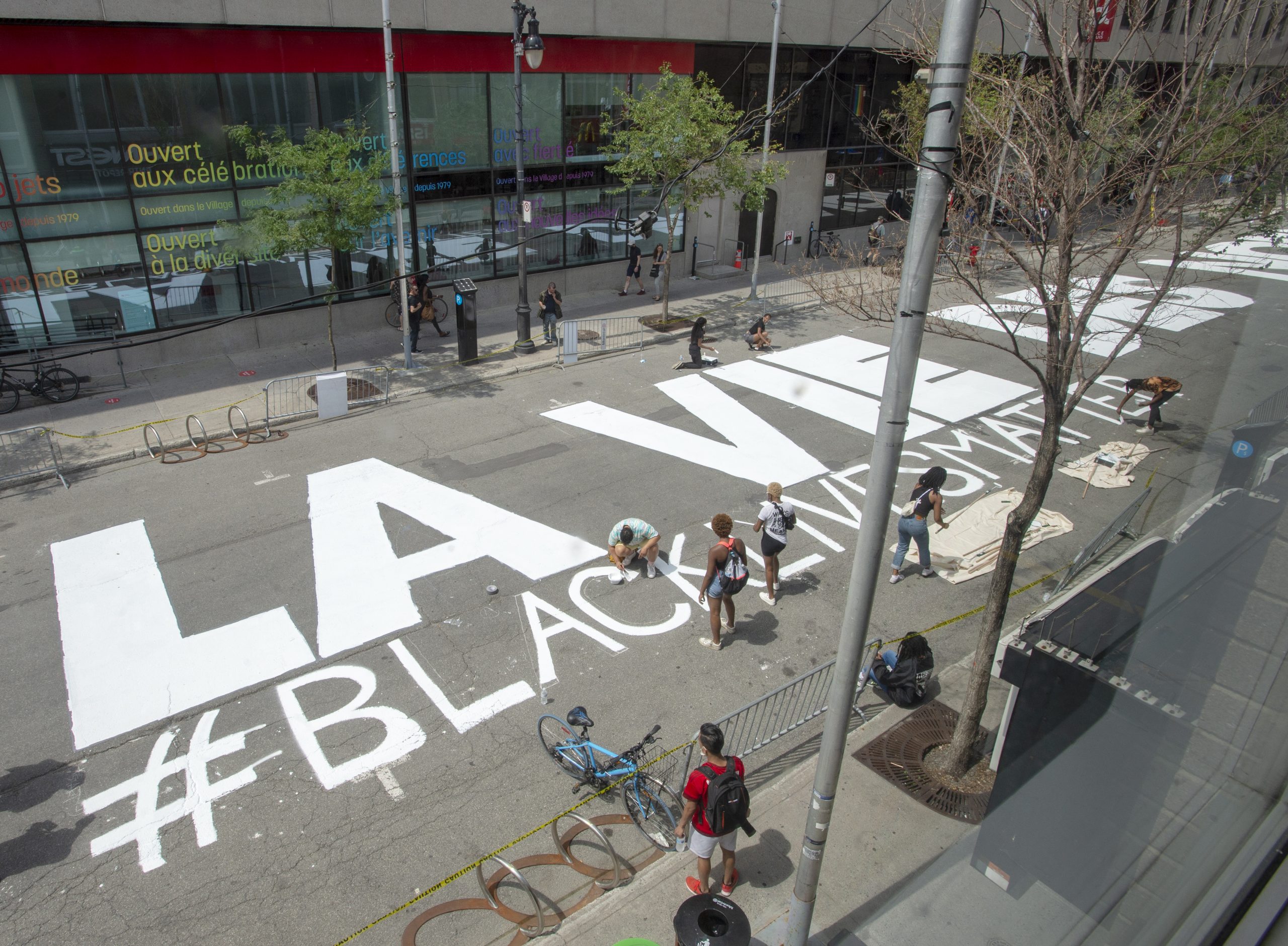No real action to end racial injustice in Montreal since George Floyd murder: activists
Posted May 17, 2021 6:00 am.
Last Updated May 17, 2021 4:53 pm.
MONTREAL (CityNews) — A year after the murder of George Floyd sparked a racial awakening, including protests on the streets of Montreal and across Canada, activists on the front line of social justice say the pace of change is very slow in Quebec because leaders still deny the existence of systemic racism.
Activists at the Center for Research Action on Race Relations (CRARR), a group at the heart of Montreal’s fight for racial justice for nearly 40 years, say the overall issues plaguing the province’s racialized and marginalized communities have not improved.
“The problem is the situation hasn’t changed,” said CRARR co-founder and executive director Fo Niemi. “We still get the same kind of calls, the same kind of problems that land on our door: people being stopped, the escalation through a simple police intervention, delaying of multiple criminal charges, sometimes excessive use of force.”
Advocates say part of the problem is that the Quebec government has refused to accept the term systemic racism.
“I think there is some discrimination in Quebec, but there’s no systemic discrimination,” said Quebec Premier Francois Legault in June 2020. “There’s no system in Quebec of discrimination. And it’s a very, very small minority of the people that are doing some discrimination.”
READ MORE: Quebec leaders forced to confront systemic racism in 2020
The debate over the term in Quebec is years in the making.
Three years ago, the provincial Liberals tried to hold a public consultation on systemic racism but cancelled the event after outcry from the public and the opposition. The government at the time said the consultation would amount to putting Quebecers on trial — an argument Legault has often repeated.

“You have to understand it (system racism) and recognize it for what it is,” said CRARR lawyer René Saint-Léger. “If we continue going this way, treating it as a matter of fact, nothing is going to be changed.”
READ MORE: “Enough is enough:” community groups demand police reforms (June 10, 2020)
Niemi, Léger and the small team at CRARR provide support and counsel to racialized communities, especially members of the Black community who they say have been discriminated against in thousands of racial profiling cases.
CRARR says calls for police reform intensified in the wake of Floyd’s murder in May 2020.
“One thing I believe, as in the George Floyd case, is that fact that people can now film,” said Saint-Léger. “And the police need to have body cams … that is going to reduce the amount of abuse that can be done on such a regular basis.”
Unlike Legault’s CAQ government, Montreal Mayor Valerie Plante has said she recognized systemic racism existed and has vowed changes.
People paint Black Lives Matter in English and French on Ste. Catherine Street Tuesday July 14, 2020 in Montreal.THE CANADIAN PRESS/Ryan Remiorz
Last July, some 20 artists painted a giant “Black Lives Matter” message down a portion of Saint-Catherine Street in the city’s Gay Village neighbourhood.
While the mayor publicly supported the artwork and corresponding social movement, activists say the city has yet to take real action.
Calls for Montreal’s police force to approve body cameras were renewed in April when the provincial police announced they would take part in a body camera pilot project.
Montreal police officers were the first police force in Quebec to take part in a body camera pilot project, between May 2016 and April 2017.
The city’s police force produced a report in 2019 concluding cameras had little impact on police interventions, created logistical issues and left officers feeling like they were under surveillance.
City administration officially rejected the use of body cameras by its officers in February 2019.
Some in Montreal’s marginalized communities say they have begun installing their own dash cameras in their vehicles to record interactions with police as a way to protect themselves.
“People need to assert their right to first-class and full citizenship,” said Niemi. “Above it all, they have a constitutional right to equal protection of the law and need to exercise that right day in and day out. Without fear, without hesitation.”
WATCH: ‘Driving while Black’ case brings reform to race-based policing (Nov. 23, 2020)
CRARR averages about 50 cases a year related to racial profiling, mostly dealing with police. They say that’s a steady increase from the past couple of years.
“They stop somebody driving a car, driving while black,” said Saint-Léger. “First question is asked: ‘does the car belong to you?’ The car may be six or seven years old. But it is a brand name car, a luxury car. ‘Does that belong to you?’
“It is a continuous, even daily work to be at it every day in order to bring people to the realization that they must change.”
–with files from The Canadian Press










